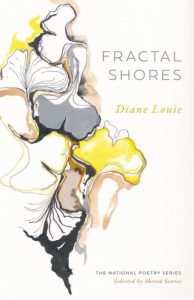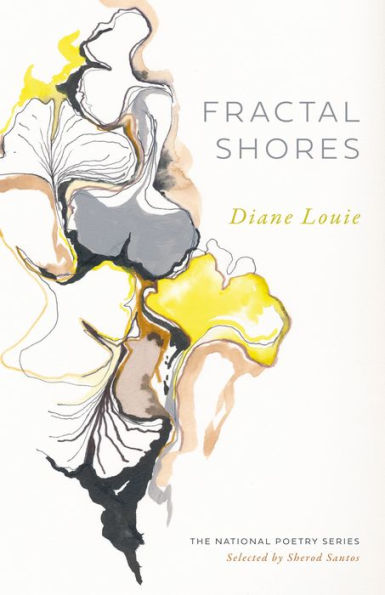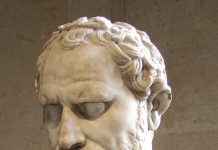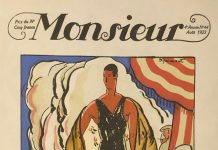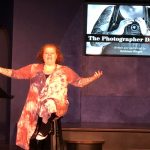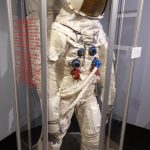I do not like modern poetry; mostly because it is modern, but secondarily because it is not poetry (modern means after TS Eliot). Therefore, whenever I read poetry, or as it happens with Diane Louie’s Fractal Shores, prose-poetry, which is written after TS Eliot and is not dead, my consciousness experiences a resurrection. Poetry itself experiences a resurrection. I do not understand Fractal Shores, because nobody can ever understand poetry, not even poets. Socrates knew that. Poetry, like philosophy, like art, like all communication, creative and scientific, is a method of interpretation, and the poet, as author, is he (or in this case, she), who creates what we shall interpret. Diane Louie writes to interpret “liberties of perception. . . .Marrying, even uneasily, the inquiries of science and spiritual longing can illuminate what they-and we-have in common: our desire to understand our presence in a Universe” – and perhaps that is where my lack of comprehension begins.
Humanity has understood our presence in the world for many thousands of years; the very fact that we have taken such liberty in subjugating this planet and its nature to our needs and desires is testimony that we understand our presence in this world. What we do not understand is why we are present – the why of our presence though precedes (and proceeds from) our presence. The why of our presence is different from our presence: we can feel our presence, but we cannot feel the why of our presence, and it is the why of our presence which poetry must help us understand. This it does thru consciousness, albeit tentatively and brokenly (“There is no word for going toward what’s left behind”); consciousness can be thrown back and forward and anchored as well – it is versatile for the purpose of exploration. And I think Diane Louie agrees with me.
“Poet Diane Louie thinks of prose poems as little events. They are happening and happenings.” They are happening and happenings – they are present and past – imagination and memory. Poetry can place consciousness in the past-in-the-present (the why of our presence), the present-in-the-present (the presence itself), the present-in-the-future (the why of our presence again). Consciousness can feel in the past, the body can only feel in the present. Fractal Shores is a collection of over sixty prose-poems that, whether they speak in the present or the past, or both, all idle exactly in their moments. I could say the poems even wallow in their own atmospheres. “Silence in the stillness”, as one poem begins. A particularly wonderful aspect of Louie’s poetry is that it is self-reflexive (though she says “An eye cannot see itself”), it is aware of its own internal structure, or lack thereof, and its own exploration. One of her poems says, “A reference must be imposed”, and the reader’s (or auditor’s) own consciousness is the imposed reference point when a poem is read (or heard). Also, the poems in this book only ever suggest an answer to a situation, the situations themselves posing the questions, or the why of presence in any situation. Sometimes both the questions and the answers are broken off before they are fulfilled: “We hold these truths to be self-evident, that-we, three women exposed in a creek, are up to that.” All the same, Louie cannot escape modernity. She cannot escape the exile of the soul, nor the exile of God, nor the exile of our humanity. She cannot escape modernity’s mantra “No. No. No. . . .No, he was saying as if we didn’t really know”.
My favorite poem (or sequence of poems) – and my favorite line – in the whole book comes from the “The Lucy Sequence”. It is a sequence about precisely the precariousness of the poetic pursuit: “A fragment. . . .surfaced. . . .”. that which came before our presence and whether it could answer the why we are cursed with. We have forgotten, in our faux-scientism, that human life cannot be articulated thru equations, nor thru simplifications, nor thru chemical reactions. We have lost humanistic knowledge, but Fractal Shores is a resurrection, however brief and individual, of this knowledge. It is the knowledge that “Real life isn’t geometric.”
[Editorial note: Diane Louie was born in Canada and grew up in Connecticut. She holds degrees from Oberlin College and the University of Iowa Writers Workshop for both poetry and fiction. She lives in Paris. Fractal Shores (88 pages) is $19.95, published by Univ. of Georgia Press: www.ugapress.org.]
